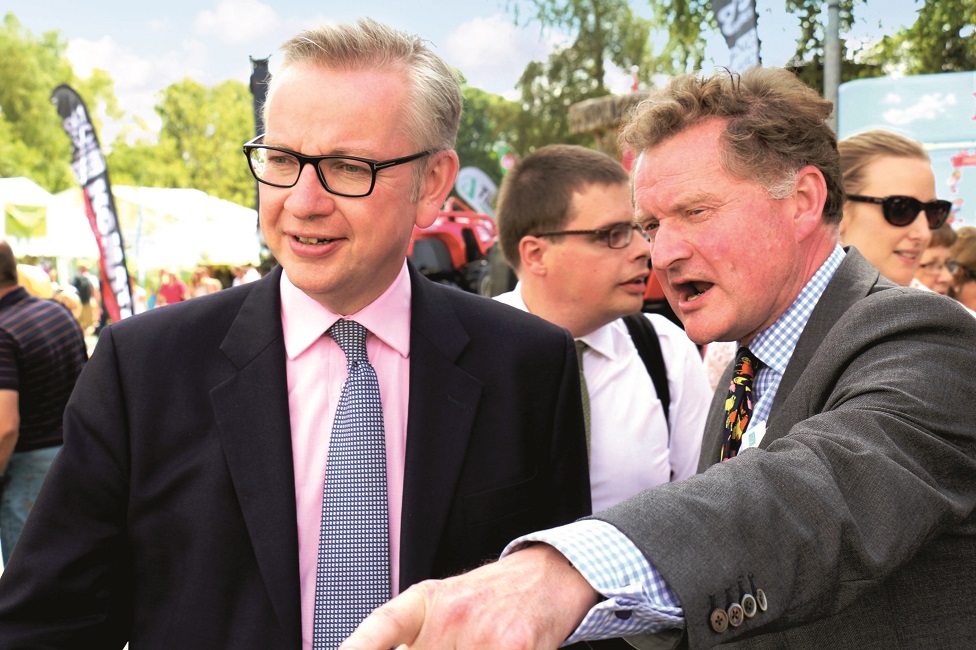The future of farming: those who shout loudest?
Society has arguably never been as polarised as it is now. The spread of the internet and the rise of social media, far from propagating a sensible debate on key issues, seem instead to have allowed those holding strong opinions on either side of an argument to group together.
4 minutes to read
While this in itself is not a bad thing – minorities of course deserve, and need, to be heard in civilised society - the usual outcome is two opposing voices shouting at each other ultimately drowning out the views of the majority in the centre ground.
As a result, consensus and pragmatism seem in short supply in the UK’s current political discourse – witness the hostile debate between hard line Brexiteers and ardent remainers – moderate opinions struggle to be heard above the noise.
The environment is particularly fertile ground for those with the loudest voices who vehemently believe in their cause and are extremely effective lobbyists.
Apparently the vast majority of responses to Defra Secretary Michael Gove’s Health and Harmony consultation on the future of agriculture post-Brexit were from environmentalists, not active farmers as one might expect.

Above: Michael Gove with Knight Frank's Ross Murray when he served as CLA president
An interesting example of the polarised debate currently gripping agriculture and the environment was on display at an Intelligence Squared debate I attended recently in London with Ross Murray, Knight Frank’s Chairman of Rural Asset Management.
Titled The Battle for the Countryside: Britain should Rewild its Uplands, the motion was proposed by vocal environmentalist George Monbiot, while Cumbrian MP Rory Stewart led the opposition.
The debate was passionate with both sides making some good points, but in reality the motion itself was deeply flawed, implying in some way that the UK’s uplands have undergone some recent environmental assault that needs to be reversed.
That, however, is not the case. Our most loved upland landscapes such as the Lake District have been shaped over the course of thousands of years, by a number of factors. Lynx and other species that the Rewilders would like to reintroduce were long gone before modern farming techniques began to change the face of our lowland countryside over the past 100 years.
That, however, didn’t stop the audience, largely bereft of farmers, cheering wildly whenever Mr Monbiot accused farmers of damaging the environment or lambasting the influence of EU subsidies paid to upland livestock farmers.
Howls of indignation also greeted the suggestion that badgers might at least be partly responsible for some of the damage to other species blamed on agriculture – something the chairperson of an influential wildlife charity recently told me was a fact, but not something they could ever admit in public for fear of losing supporters.
A sensible conclusion to the debate would, I propose, have been that if the general public shows itself to be in favour of rewilding – although the millions of tourists who visit the uplands seem to be voting to the contrary with their feet - farmers themselves, as custodians of the uplands, should be offered the financial support to manage the process if they think it makes sense for their business.
To make it happen, however, would probably require far more financial support than upland farmers currently receive via the vilified Common Agricultural Policy.
In fact, unsurprisingly, the debate was passed comfortably. An outspoken environmentalist took to social media the next day to suggest the result meant the public had sent a message to Michael Gove that it was in favour of rewilding and this should be reflected by Defra policy.
What happened in reality was that a vocal minority shouted loudly. Michael Gove was amongst the audience, it will be interesting to see whether indeed the debate does in some way influence his thinking.
With the future of UK agriculture up for grabs as we leave the EU, farmers, landowners and the rest of the food and agricultural sector need to find a way to make their voices heard more effectively. Not by trying to polarise the debate even more than it already has been, but by reconnecting with the majority of consumers who occupy the middle ground.
Not an easy task in a world when “those who shout loudest win” seems to be the current political modus operandi of choice.
Our rural consultants provide flexible rural consultancy services tailored to every aspect of owning, investing in and running rural property from farms to farmland and rural estates.